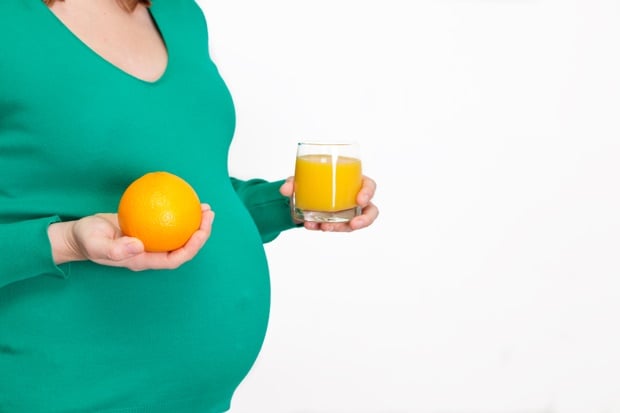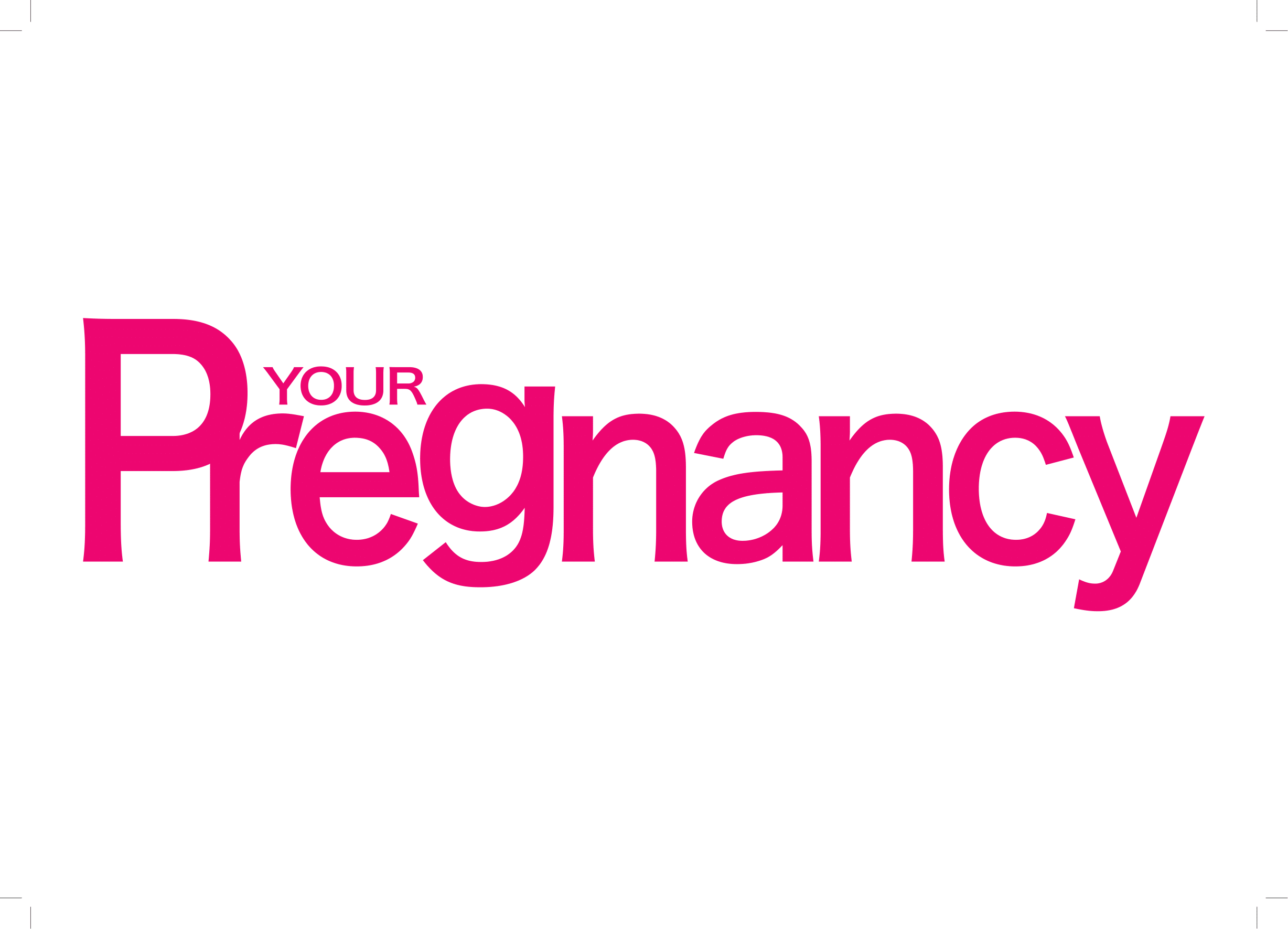
If there's one thing people love to do when you’re pregnant, it’s to tell you what to do. Or, in the case of old wives’ tales, what not to do.
“Don’t hang the washing, your baby will strangle itself in its umbilical cord,” your great aunty will screech as your mom-in-law tells you not to sleep too much as it’ll make your baby lazy during labour.
Or, “Don’t you dare have a bath,” your granny will warn as you lie in the tub with your sister dangling a ring over your belly to see which way it swings, to find out what you’re having.
Yep, these are just a few of the ridiculous tales you may or may not have heard while pregnant. And while some are fun and harmless, others will more likely send you into an unnecessary panicky tailspin as there’s really no truth to them at all. Here are the facts.
Sleep
Too much sleep will make your baby lazy while in labour
“Not true at all,” says childbirth educator and Your Pregnancy magazine specialist editor, Tina Otte.
“How a baby behaves in labour depends on its character. Some are more active in labour while others aren’t – something that can be noticed even before birth and while the baby is still in the womb.
Some move a lot, others don’t. Contractions get them going and wiggling, and while some will work hard, others just don’t. Whether you have a ‘hot chilli’ or a ‘cool cucumber’ of a baby has nothing to do with how much you sleep. Some babies work a lot, others don’t.”
So rest easy, ladies. You can sleep as much as you like and as much as you can when you’re pregnant. If you’re working or have other children running around, this isn’t always so easy though.
Sleeping on your back can hurt the baby
Once you get to the third trimester of pregnancy, OB/GYNS don’t recommend lying flat on your back for any prolonged period of time. Why? When you lie on your back, the increased weight of your uterus presses on the major vein that returns blood from your legs to your heart.
Lying on your back for an extended period could interfere with the flow of blood and nutrients to the placenta and your developing baby. Sleep on your side – but don’t get a fright if you wake up on your back. Baby will be fine.
Ice
Eating ice will make you cold during labour and give your baby black spots
“That’s absolutely rubbish,” says Tina.
“Ice cools you down and is wonderful during labour – especially to chew on.” She adds that it certainly won’t give your baby black spots or birthmarks, which are areas of discoloured skin on a baby’s body at birth, or that show up within a few months after delivery.
Over 80% of babies have some kind of birthmark. Some last forever, while others fade away over time. Most birthmarks fall into one of two categories: vascular or pigmented.
Vascular birthmarks are caused by blood vessels that have accumulated below the surface of the skin. They range in colour from pink to red to bluish.
Pigmented birthmarks – usually brown, gray, bluish, or black – result from an abnormal development of pigment cells, and have nothing to do with those ice cubes that you popped into your mocktail.
Fruit
Eating oranges gives your baby jaundice
Oranges are an excellent source of Vitamin C and not at all bad for you to eat when pregnant. They certainly won’t give your baby jaundice either.
Jaundice, a yellowish discoloration of the skin and whites of the eyes, is actually caused by too much bilirubin in the blood.
Bilirubin is a yellow pigment that’s produced when primitive red blood cells are destroyed – something that often happens after birth, and not when you’re pregnant. Infant jaundice usually appears by the second or third day after the birth, and lasts for about 7 to 10 days.
By this time, the surplus red blood cells have died off and the baby’s liver has matured enough to mop up the excess bilirubin in the body.
Hands
Don't hold your hands above your head or the baby will get wrapped in the cord
Not true.
The incidence of the baby’s cord being around the neck, called a nuchal cord, occurs in about 1/3 of all births and has to do with the twists and turns that your baby makes while in the womb.
About 20-25% of all babies are born with the cord wrapped around the neck, and many are born with cords around their legs. Some cords are tied into knots. There is nothing that you can do or not do to cause this.
Bath
Baths are bad for baby
Baths are very good for you and often the bath is the comfiest place to be towards the end of your pregnancy when every bone in your body is aching. It’s the temperature of the bath that you need to worry about.
Very hot baths are not a good idea as they can cause your body temperature to rise, and this can cause problems for a developing baby, particularly in the first trimester. Your baby is not in danger of getting germs from bathing – he is protected by the amniotic sac and the mucous plug.
Cats
Cats can steal the air from a baby's mouth
This tale goes back hundreds of years to when cats were associated with witchcraft. It’s impossible for a cat or other animal to suffocate a baby by covering your baby’s mouth with its own. Cats and other pets should be introduced to a baby slowly.
Sex
Sex during pregnancy hurts the baby
One of the most common reasons couples cut back on sex during pregnancy is a fear that they’ll hurt the baby. Stop worrying.
Your baby is surrounded and cushioned by amniotic fluid, and protected by your uterus and a layer of muscles. The mucous plug inside your cervix also guards against infection.
However, there are some medical reasons to avoid sex. If you are diagnosed with placenta praevia – when the placenta has implanted in the wrong position – you will be told to abstain from sex.
Previous miscarriages, a weak cervix and unexplained bleeding would also be good reasons to lay low until after your baby is born.
Boy or girl?
These days it’s easy to find out via an ultrasound whether or not you’re having a boy or a girl but be warned: some women have been told at every scan that they’re having a boy and out’s popped a girl (or vice versa!).
Nevertheless, scans are generally accurate at predicting a baby’s sex and it’s not necessary for you to play games – like the “ring test” – to guess what you’re having.
Still, some myths are fun to believe in... especially for those around you. (For those who haven’t heard of the “ring test”, according to the tale, if the ring, attached to a string, swings from side to side, it’s a girl, and if it swings in a circle, it’s a boy.)
Here are some of the most common gender myths:
Your baby's heart rate will determine its gender
The heart rate of your baby fluctuates as it grows and moves. Heart rates start out slower, and then by 10 weeks, run in the range of 170–200 BPM (beats per minute). As you approach mid-pregnancy, the average heart rates run between 120-160 BPM.
If your baby moves, his or her heart rate goes up, just as your heart rate does with movement.
However, none of this is related to the gender of your baby. A study was actually done to test this theory, and results showed that there is no correlation between gender and foetal heart rate.
The way you're carrying says it all
If you’re carrying high and “all over”, you’ve probably been told you’re having a girl, right? And if your bump is low (and all bump) we bet you’ve been told that it’s a boy, no?
What’s actually happening with the way you’re carrying is that if you have a short torso, there’s no place for the baby to grow but outward. A long torso may mean roomier accommodations for a baby, making it less likely for your tummy to bulge outward. And a wide belly may just mean that the baby is sideways.
Let’s not forget that babies are carried differently based on their presentation (breech, vertex, transverse), their position (anterior, posterior), their gestational age and weight, and whether or not this is your first or fourth baby.
For example, if you’re carrying high, it’s usually because it’s your first baby and your body’s still in good shape. Stomach muscles have a tendency to become more elastic with each pregnancy, so a tummy that’s seen more than one pregnancy may hang quite low.




 Publications
Publications
 Partners
Partners














